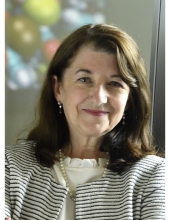CBE Seminar: Accomplishments, Challenges and Outlook for Modeling Metal Halide Perovskites

Department Head and Professor
Department of Chemical and Biomolecular Engineering
Johns Hopkins University
Abstract: There are many problems at the forefront of materials chemistry that are stymied by their inherent complexity. Such problems are characterized by a rich landscape of parameters and processing variables that is combinatorially too large for either an experimental or a computational approach to solve through an exhaustive search. In such cases, the usual approach is an Edisonian trial-and-error approach, which inevitably leaves areas of parameter space largely or wholly unexplored. The problems that we have explored are also characterized by a scarcity of data, since the data are expensive to acquire, both experimentally and computationally. This makes it an ideal candidate to solve using a Bayesian optimization (BayesOpt) approach, which provides a strategy for a global optimization of “black box” functions lacking a functional form.
For much of a decade, we have used a Bayesian optimization approach to study the solution processing of metal halide perovskites, a promising class of materials for solar cell development. Solution processing offers a low-energy-use and deceptively simple protocol to create electronically active thin films with high solar cell efficiency. In this talk, we will cover our accomplishments, challenges and outlook for what Bayesian optimization might achieve to help us understand, and hence control, these processes. I will end with some ideas of where we are taking BayesOpt in terms of having the ability to model nucleation and growth of metal halide perovskites and the algorithm development we will need to get us there.
Bio: Paulette Clancy is a professor and the inaugural head of the Department of Chemical and Biomolecular Engineering at Johns Hopkins University. She holds the Samuel and Diane Bodman Professor Emerita Chair of Chemical Engineering at Cornell. She was the inaugural director of the Cornell Institute for Computational Science and Engineering for almost 10 years and is reprising a similar role at Hopkins, chairing the faculty oversight committee for the petascale research computing resources, ARCH.
Clancy's research group is recognized as one of the country’s leading computational groups in atomic-scale modeling of materials and algorithm development. Her current thrust is to develop machine learning algorithms to accelerate the search for optimal materials processing protocols. Her group has always been focused on novel electronic materials and materials processing but it also includes more esoteric projects like xenobiology (‘Life’ on Titan). She has won numerous awards for mentoring, service learning and civic engagement, and promoting the professional advancement of those from underrepresented groups.
Host: Associate Professor Alon Gorodetsky
Share
Upcoming Events
-
CEE Ph.D. Defense Announcement: Machine Learning and Remote Sensing for Environmental Modeling - From Large-Scale Streamflow Forecasting to Malaria Risk Mapping
-
CBE Special Seminar: Operando Electrochemical Methods at Dynamic Energy Materials Interfaces
-
CEE Ph.D. Defense Announcement: Release, Transport and Fate of Per- and Polyfluoroalkyl Substances (PFAS) in Urban Watersheds
-
MSE 298 Seminar: Mechano-Electrochemical Phenomena at Ceramic Electrolyte Interfaces
-
MSE 298 Seminar: Innovation In Materials Science - An Industrial R&D Perspective
